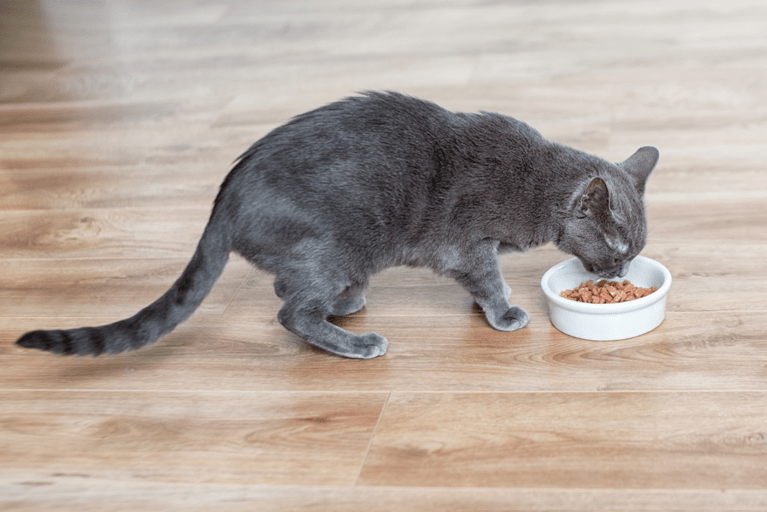As a pet owner, you love your furry feline friends and want the best for them. One of the most significant aspects of caring for cats is maintaining a healthy weight. Just like humans, feline obesity can lead to various health issues, reducing the quality of their life. Cat obesity is a common disease in North America, as 60 percent of domestic cats are overweight.
Whether you have a playful kitten or a couch-loving senior cat, signs of obesity can appear at any life stage. The good news is, you manage your cat’s food intake to prevent obesity and help them live a more active and fulfilling life.
The Risks of Feline Obesity
Feline obesity is a significant concern that significantly impacts their overall health. Cats that are overweight or obese are at higher risk of developing the following health problems.
- Diabetes: If your cat is overweight, they have a higher chance of getting diabetes, a long-term condition that needs continuous care and can greatly impact their overall health.
- Joint Problems: Extra weight strains your cat’s joints, leading to arthritis and mobility issues.
- Heart Disease: When cats become overweight, their hearts have to work extra hard to pump blood due to the added weight. This can cause high blood pressure and harm the heart muscle, potentially leading to heart disease.
After you get familiar with the dangers of feline obesity, consider the following strategies to manage your four-legged companion’s food intake to maintain their weight.
Choose the Right Cat Food
Selecting the appropriate cat food is key to managing your pet’s weight. Look for high-quality, balanced cat foods specifically formulated for weight management. These foods are typically lower in calories while providing the necessary nutrients your cat needs.
You may also want to look into the type of food you are currently feeding your cat, as it may include additives or fillers that contribute to weight gain. Consider switching to raw food if you want an alternative recipe made without added processes. You will find that Bold By Nature raw food for cats might be a better option for your furry friend, as it uses minimal ingredients and does not include fruits or vegetables, which can sometimes contribute to weight gain in cats.
Measure Meals Carefully
Avoid free-feeding and, instead, portion out your cat’s meals. Use a measuring cup to provide your cat with the correct amount of food according to your vet’s recommendations. You can also consider dividing meals into multiple smaller portions throughout the day to keep your cat satisfied and prevent overeating.
Monitor Treats and Snacks
It can be tempting to treat your cat when you’re having one, but treats and snacks can quickly add up in calories, leading to weight gain. Instead of giving treats freely, use them sparingly and opt for healthier alternatives, such as small pieces of cooked chicken or commercially available low-calorie treats. Don’t forget to factor treats into your cat’s daily caloric intake when offering treats.
Create an Enriching Environment
Cats are natural hunters, and providing mental stimulation through play can help reduce their inclination to overeat out of boredom. Engage your cat in interactive play sessions with toys that mimic prey, such as feather wands or laser pointers.

